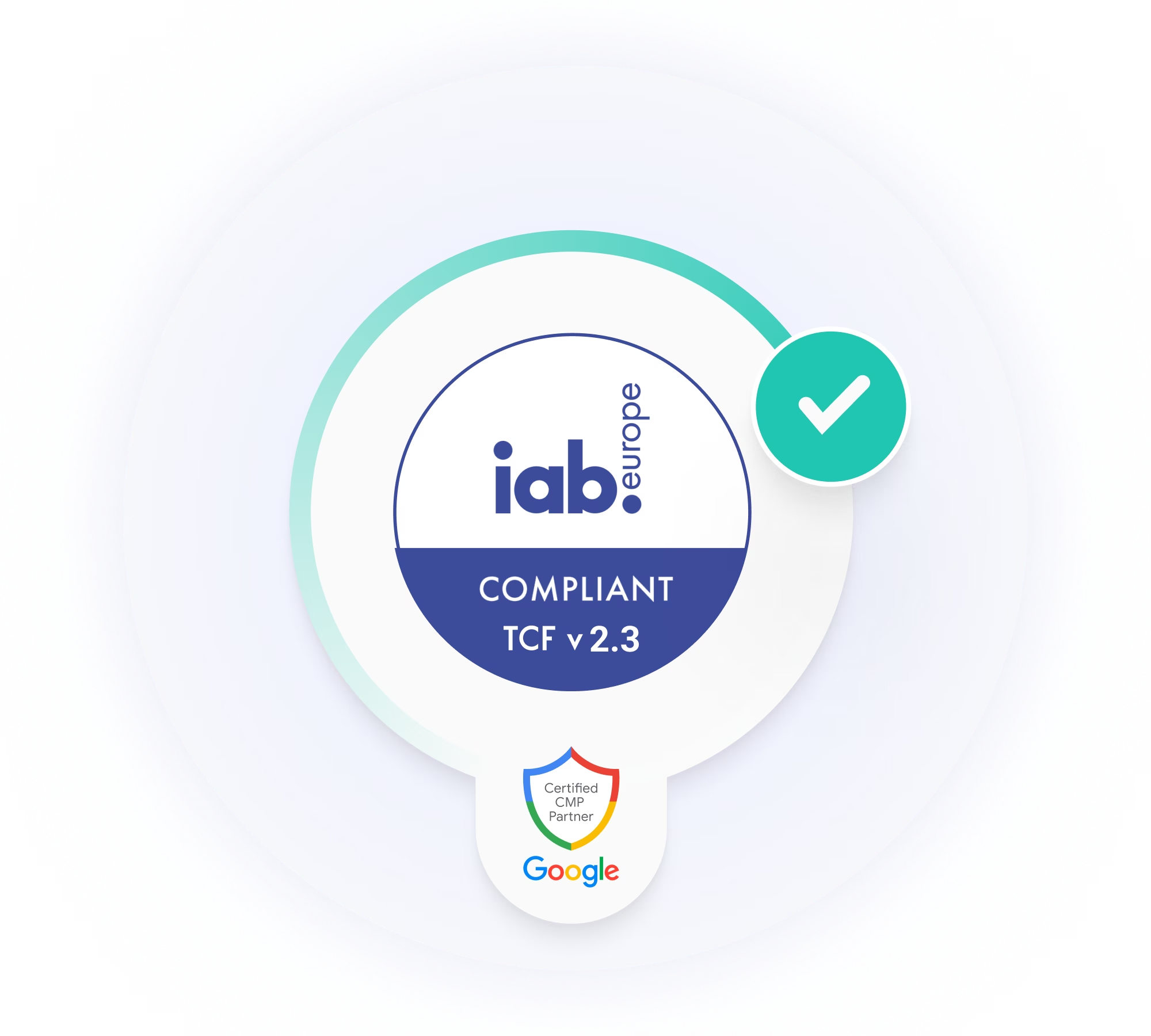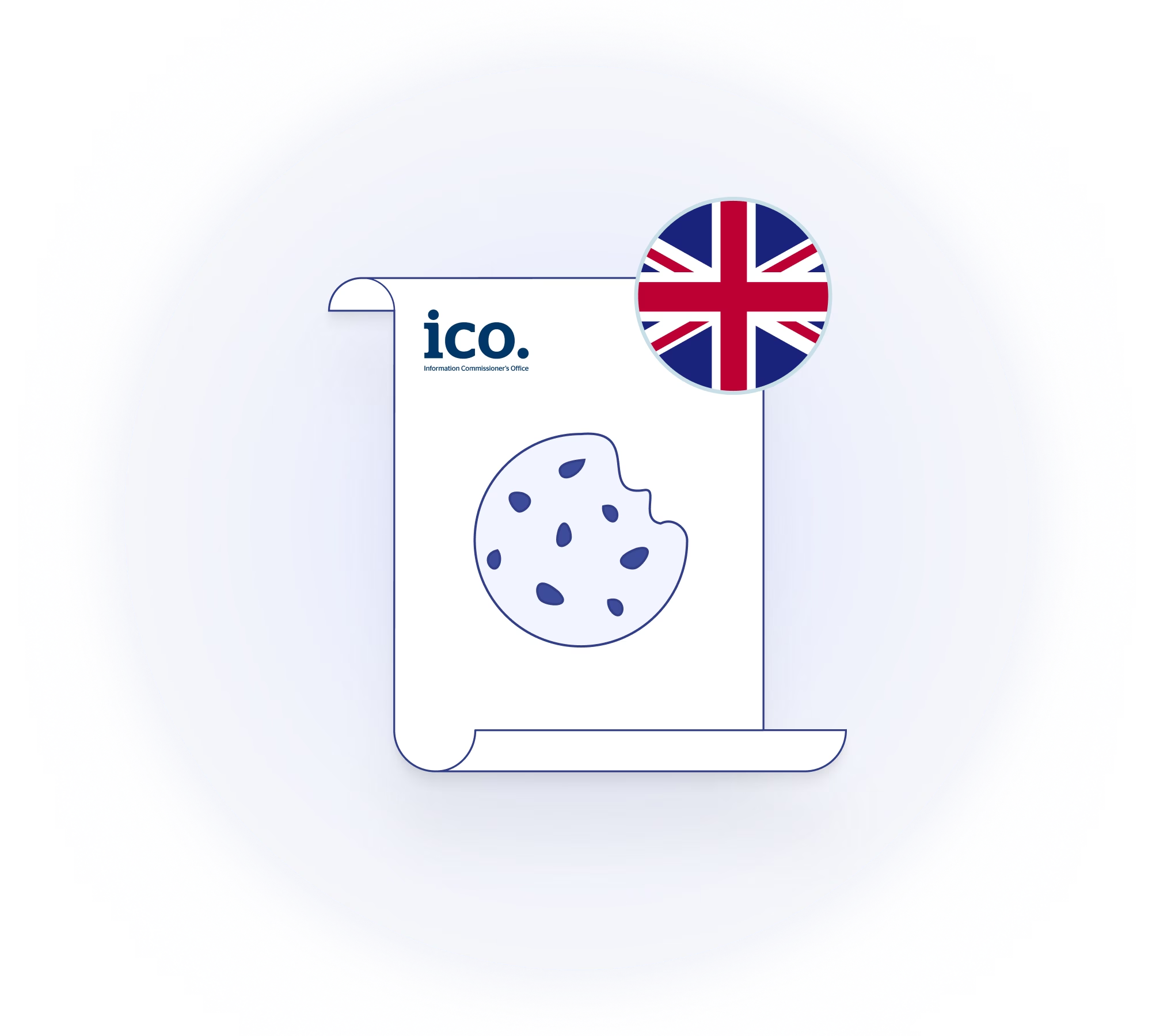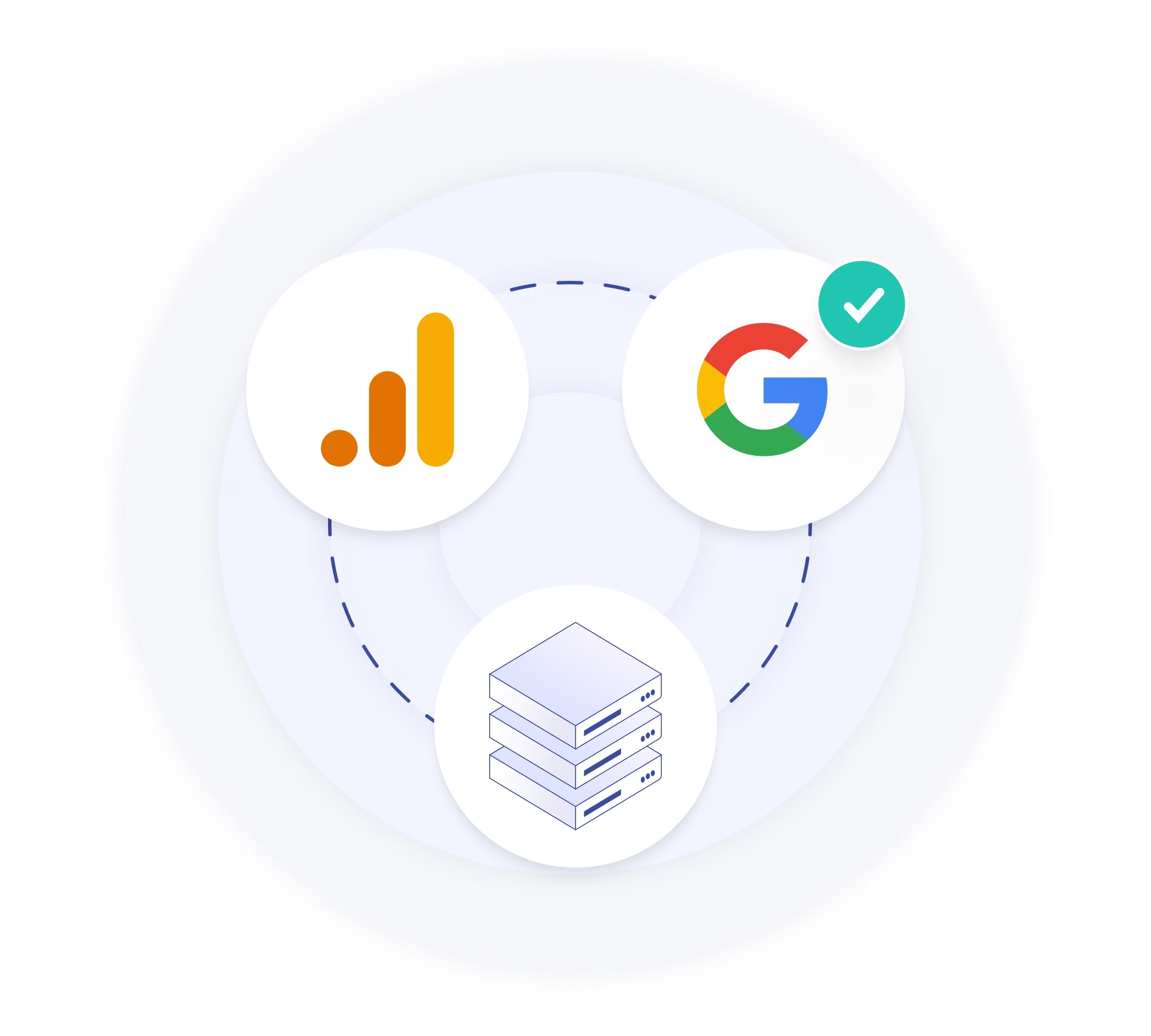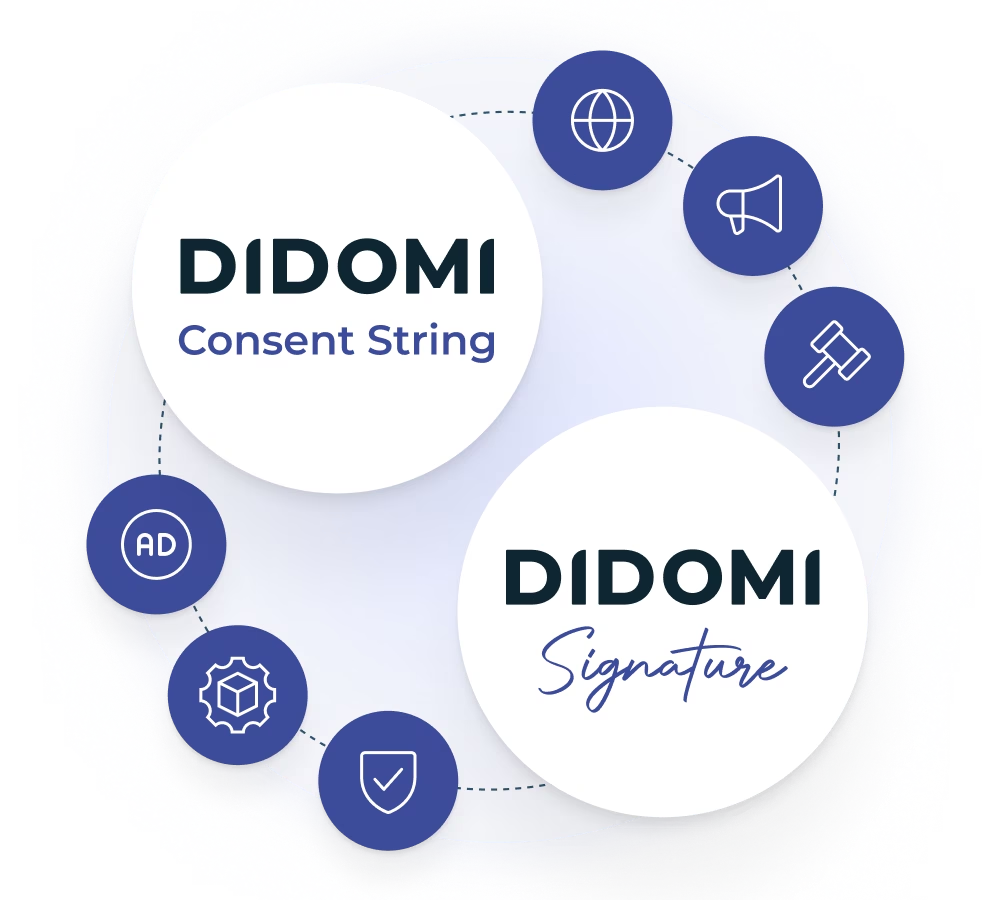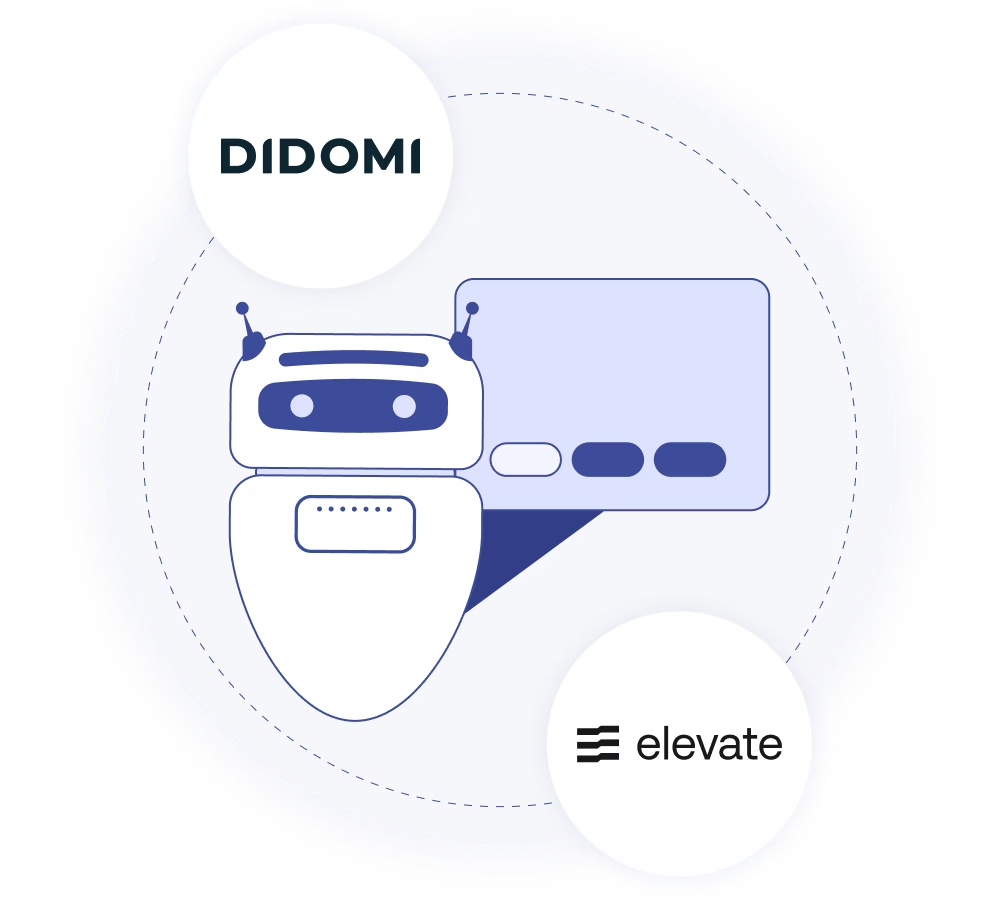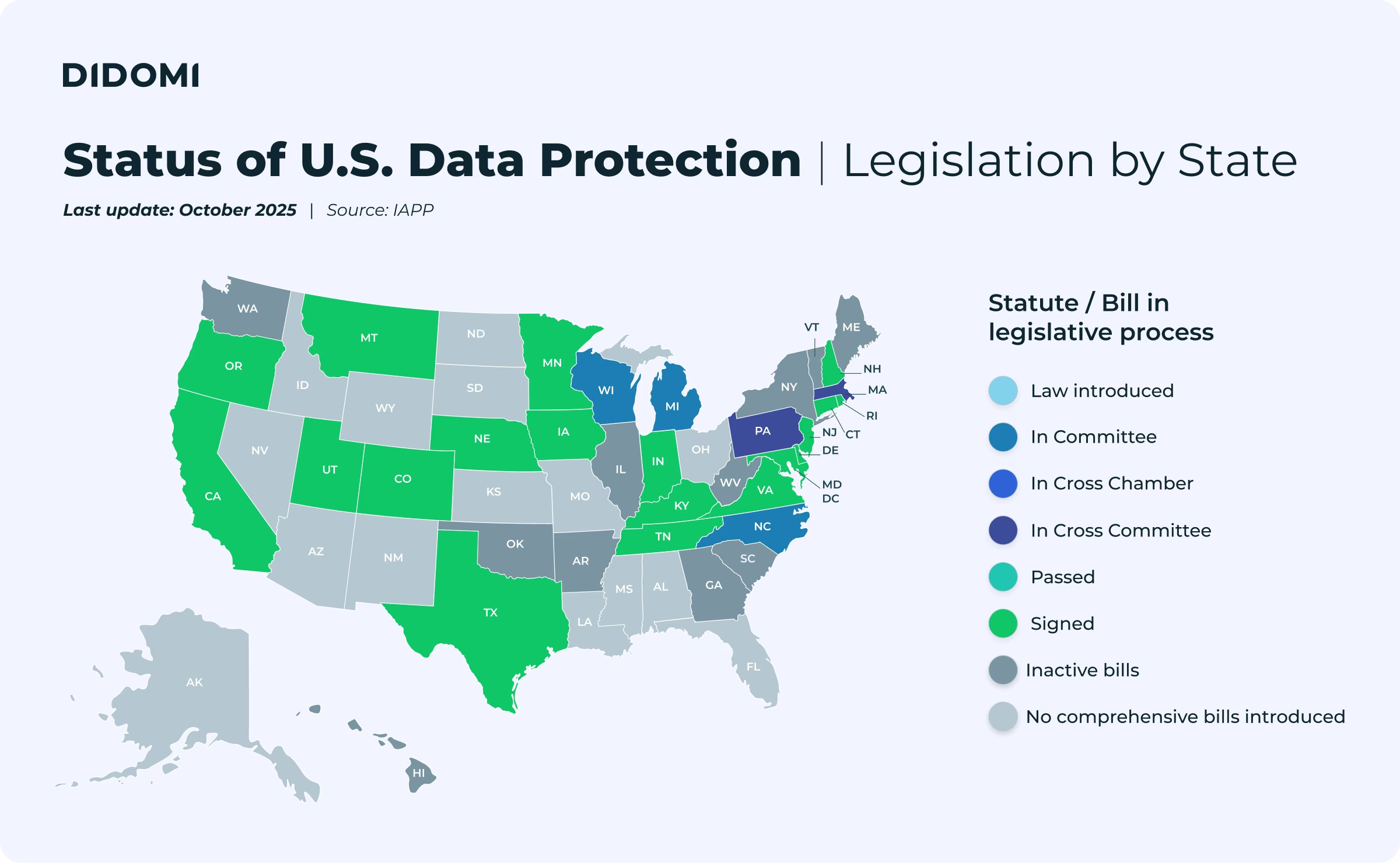Managing consent for millions of users across multiple brands, markets, and technologies is one of the most complex challenges facing global organizations today, at the intersection of compliance, data governance, interoperability, and user trust on a large scale.
Consent Management Platforms (CMPs) have evolved from simple cookie banner tools into critical infrastructure for privacy-led organizations. In this guide, we provide a comprehensive overview of some of the best CMPs for companies with enterprise-level data privacy requirements.
What is a Consent Management Platform (CMP)?
A Consent Management Platform (CMP) centralizes how organizations collect, manage, and transmit user consent signals across channels and vendors.
Enterprise-grade solutions take it a step further by enabling compliance at scale, standardizing consent data, and ensuring that privacy signals integrate seamlessly with data and marketing infrastructure.
Top 5 enterprise Consent Management Platforms
Now that we’ve covered what matters most in an enterprise CMP, let’s examine how five leading solutions perform against those criteria.
Each platform offers distinct strengths, depending on whether your organization prioritizes multi-regulation coverage, adtech integration, or implementation simplicity.
Didomi: Enterprise-first CMP for scalable, multi-regulation privacy management
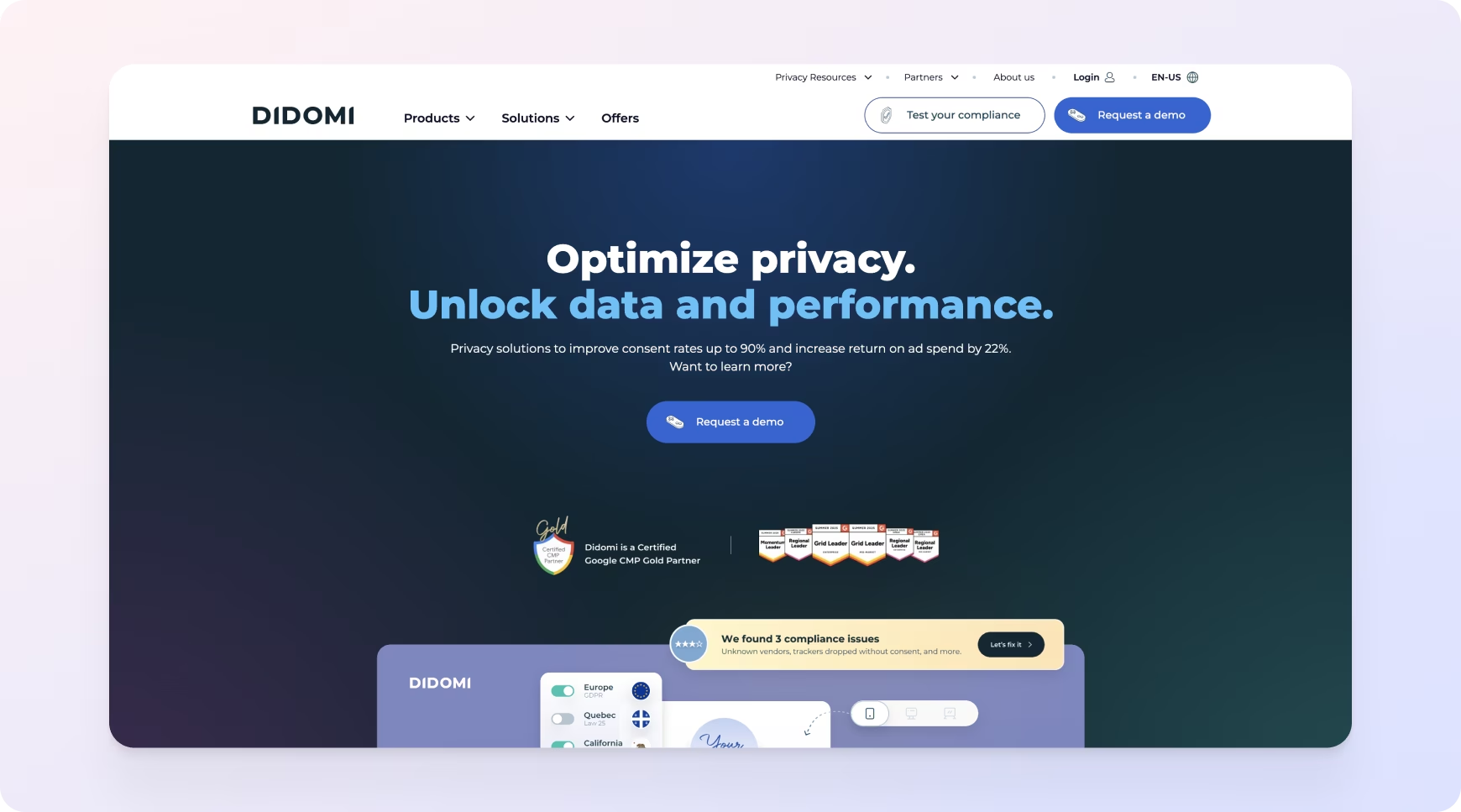
Didomi stands out as a true enterprise-first CMP, designed for multinational organizations that require managing complex consent workflows across multiple markets and brands.
With over 2 billion consents processed monthly across 25+ countries and a 99% consent string validity rate, our platform delivers enterprise-scale performance with 99.9999% uptime, along with critical features for enterprises, such as our custom consent string and signature technology for enhanced consent integrity, as well as cross-device and cross-domain consent management.
Average review scores from clients
- G2: 4.6/5 (146 reviews)
- Capterra: 4.5/5 (14 reviews)
- Sourceforge: 4.9/5 (10 reviews)
Pros:
- Multi-regulation compliance: Verified Didomi users often highlight Didomi’s multi-regulation CMP and its adaptability to local data privacy laws as a major advantage. In particular, Didomi CMP enables global enterprises to comply with the GDPR, CCPA, and other international data privacy regulations.
- User-friendly and customizable platform: Confirmed Didomi users on the G2 review website state that setting up Didomi’s consent banner on their website/app and integrating it with their website and tech stack was an easy and seamless process. They also note that Didomi’s automatic language detection and multi-language support were key to delivering a personalized user experience.
- Custom implementation for advanced use cases: Our advanced solutions enable Didomi customers to develop fully tailored approaches to their data and privacy challenges, ranging from server-to-server architectures to cross-device functionalities.
- Comprehensive reporting: Didomi users also praise the advanced analytics and reporting options, which enable easy tracking of consent rates, identification of trends, and implementation of data-driven improvements.
- Customer support: Verified customers frequently recognize Didomi's customer support department as efficient and helpful.
Cons:
- Enterprise-grade investment: Didomi’s comprehensive CMP is purpose-built for global organizations managing complex consent environments. Our enterprise-grade scope may exceed the needs of smaller companies looking for a basic solution.
- Learning curve: Although a few users reported taking some time to become familiar with the tool, the support team was responsive and provided help when needed.
Price
Upon request
Why enterprise organizations choose Didomi:
Didomi empowers multinational teams to unify consent management across regions, brands, and systems, turning compliance into a measurable driver of data quality, trust, and marketing performance.
Sourcepoint: Adtech-focused privacy suite for complex vendor ecosystems
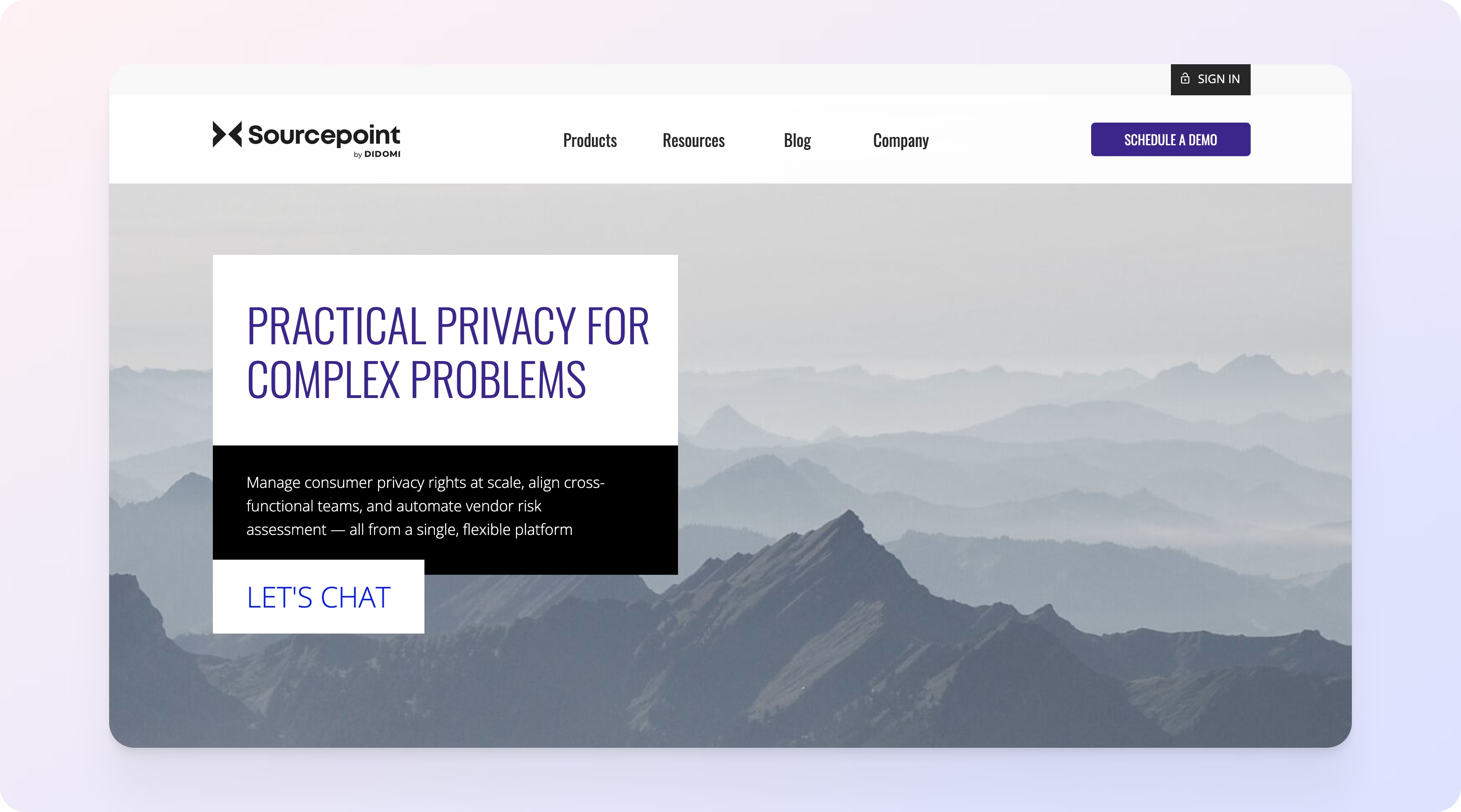
Sourcepoint excels in environments where vendor complexity and ad-tech compliance dominate. Its strength lies in vendor assessment, enforcement, and optimization for consent monetization.
Following its acquisition by Didomi in July 2025, the combined capabilities will expand enterprise-grade coverage across web and app ecosystems.
Average review scores from clients
- G2: 4.7/5 (54 reviews)
- Capterra: -/5 (no review)
- Sourceforge: -/5 (no review)
Pros:
- Flexibility and customization: Users see the platform's flexibility and customization options as one of its greatest strengths.
- Streamlined vendor management: Users note that SourcePoint’s vendor assessment capabilities are robust, minimizing vendor-related risks.
Cons:
- Complexity of the configuration: Some users report difficulty understanding how different campaigns and consent messages relate to each other when configuring the consent management platform.
Price
Starting at $500/month
Why enterprise organizations choose Sourcepoint:
Sourcepoint helps enterprises in media and advertising harmonize user consent and vendor compliance at scale, reducing operational complexity in data monetization and adtech ecosystems.
Commanders Act: Streamlined CMP for agile teams
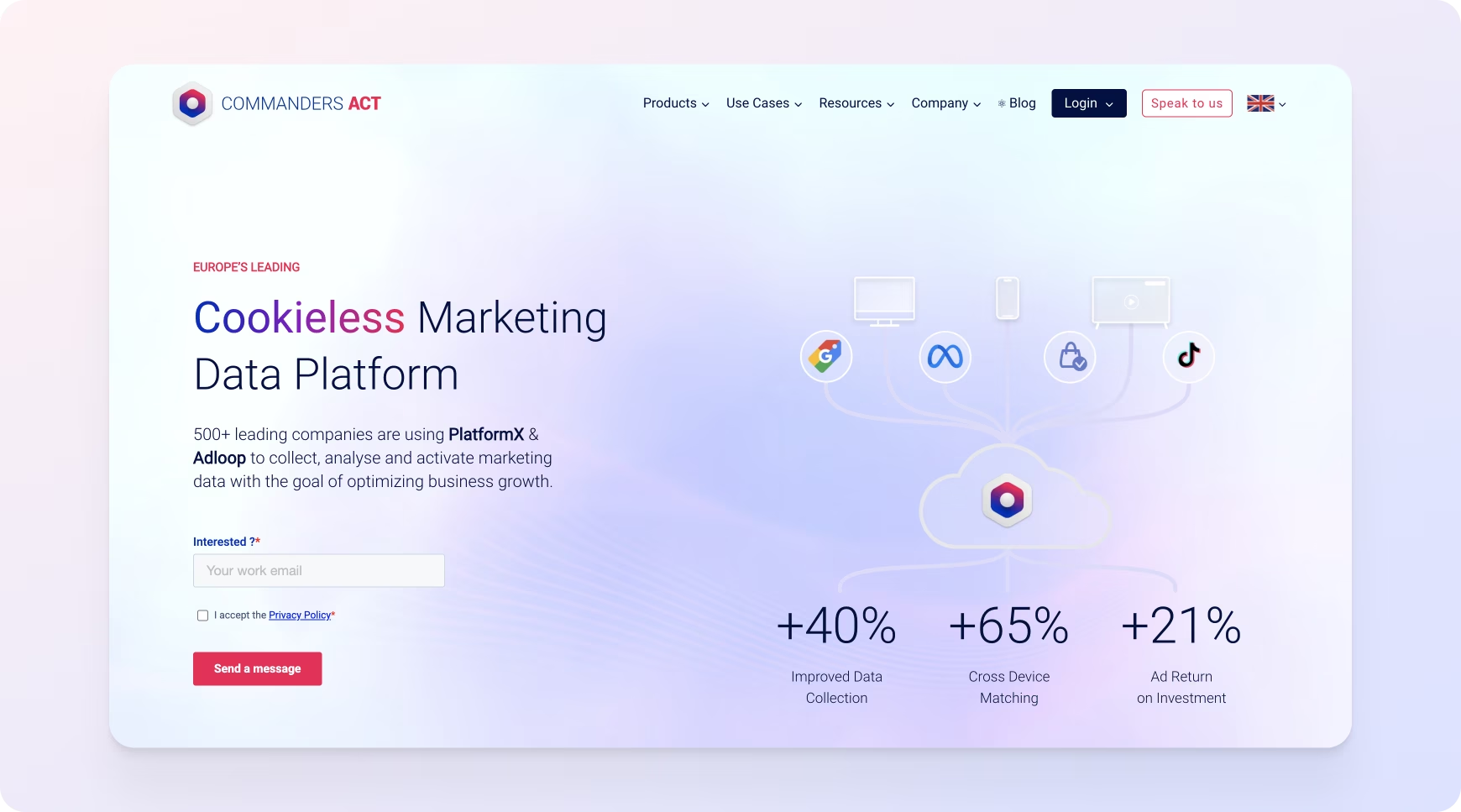
Commanders Act offers a lightweight CMP that prioritizes ease of deployment over in-depth technical customization. It’s particularly relevant for enterprises that need to roll out compliant banners quickly across multiple domains or business units with minimal internal resources.
Average review scores from clients
- G2: 3.5/5 (1 review)
- Capterra: -/5 (no reviews)
- Sourceforge: -/5 (no reviews)
Pros:
- Easy setup: A user commands the Commanders Act CMP’s user-friendly and intuitive interface that a non-technical person can quickly configure.
Cons:
- Limited integration with other tech stacks: A verified user on G2 states that limited advanced integrations and automation features may require additional engineering effort for highly customized data ecosystems.
- Few public reviews online: The limited amount of publicly available reviews from customers makes it difficult to gather feedback on theplatform.
Price
Upon request
Why enterprise organizations choose Commanders Act:
Commanders Act appeals to organizations that need a quick, low-friction rollout of compliant consent banners across multiple sites, ideal for teams prioritizing agility over deep technical configuration.
OneTrust: All-in-one privacy management suite with enterprise breadth
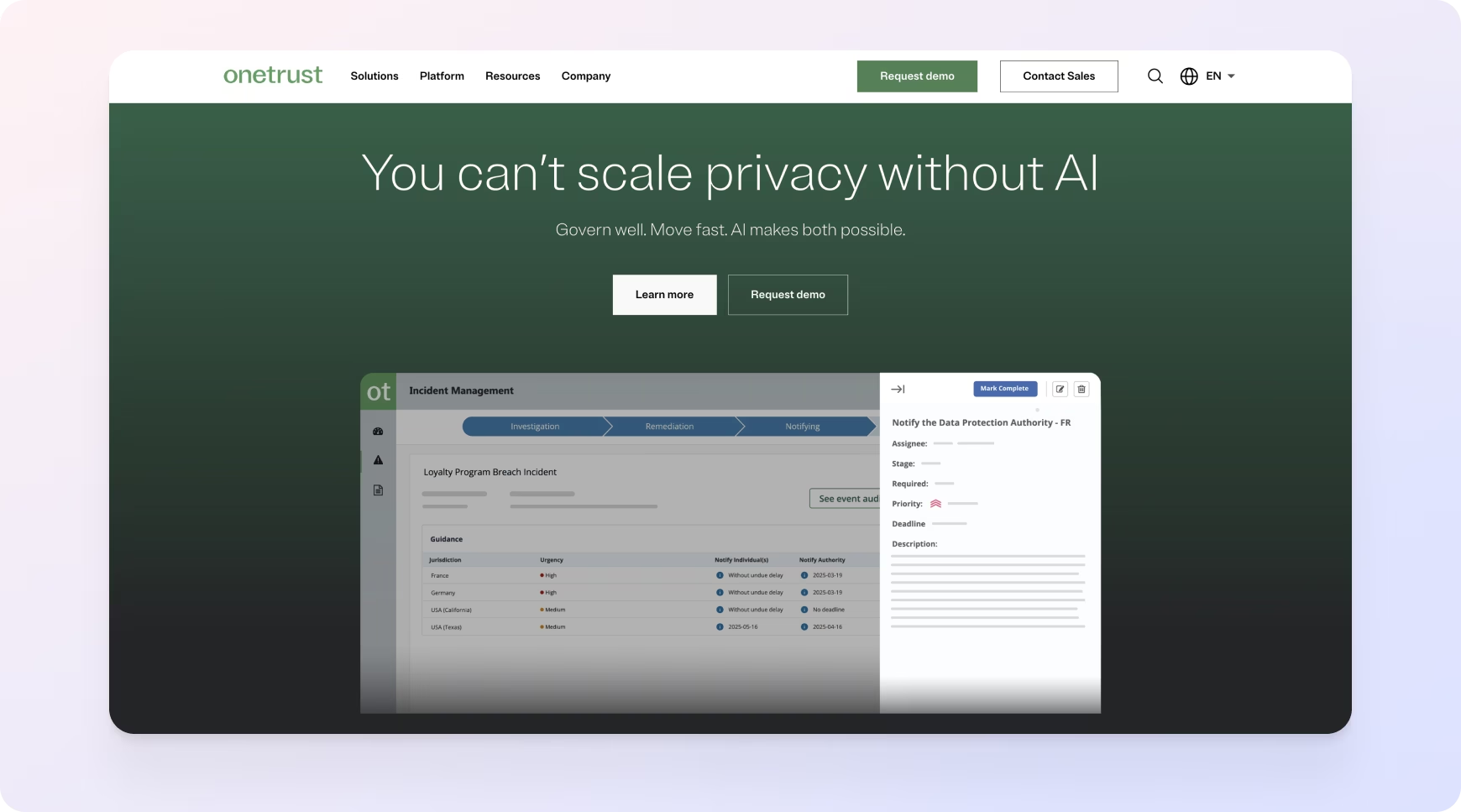
OneTrust provides one of the most comprehensive privacy management ecosystems in the market. For large enterprises that value breadth, it offers unmatched governance capabilities. However, this variety can lead to longer implementations and a steeper learning curve.
Average review scores from clients
- G2: 3.4/5 (15 reviews)
- Capterra: 4.3/5 (52 reviews)
- Sourceforge: 1/5 (1 review)
Pros:
- Multi-regulation compliance support: Users report that Onetrust CMP is useful in achieving compliance with various major data privacy regulations, as it enables users to easily customize consent banners and configurations. Additionally, users express satisfaction with the availability of over 200 languages for the Onetrust CMP.
- Reporting capabilities: Some users report that OneTrust CMP’s reporting and measurement capabilities provide them with useful insights, and they are highly accurate.
- Cookie scanning tool: Multiple users report that the Onetrust cookie scanning tool streamlines the cookie detection and categorization process.
Cons:
- Complex and counterintuitive setup: Users report that the initial setup of the OneTrust consent management platform and the subsequent configuration process are time-consuming and confusing due to the numerous features.
- Customer support: Multiple users complain about the lack of customer support from Onetrust. In particular, users complain that the customer support team does not provide practical, step-by-step assistance, instead referring them to help articles on the website.
- Integration problems: Some users report that the Onetrust consent management tool may block certain embedded media, such as Vimeo videos.
Price
Upon request
Why enterprise organizations choose OneTrust:
OneTrust provides end-to-end governance for large organizations managing complex privacy, security, and data ethics programs, integrating consent management within a broader compliance framework.
TrustArc: Governance-driven privacy automation for large organizations

TrustArc emphasizes compliance automation and certification management rather than banner optimization. Its workflow-driven interface is well-suited for legal and compliance teams that need to standardize privacy documentation, certifications, and audit processes.
Average review scores from clients
- G2: 4.2/5 (287 reviews)
- Capterra: -/5 (no review)
- Sourceforge: -/5 (no review)
Pros:
- Certification: Online reviews highlight the opportunity to display the TRUSTe certified privacy seal, provided by TrustArc, to showcase compliance efforts.
- Ease of use: Several verified customers highlight the fact that the platform is easy to use and that they appreciate some of the AI features included.
- Customer Support: The team at TrustArc is often cited as one of the platform's key strengths, although others report that it can be more reactive than proactive at times.
Cons:
- Platform complexity: Although ease of use appears to be one of the positives for TrustArc, other verified reviews mention the platform's complexity and the difficulty in navigating the tool.
- Limited features: A common criticism highlighted by reviewers is the limited number of features accessible on the lower subscription tiers.
Price
Upon request
Why enterprise organizations choose TrustArc:
Enterprises with compliance-heavy operations choose TrustArc for its audit and certification capabilities, though it may be less suited to organizations seeking flexible consent experiences or broad data ecosystem integrations.
Honorable mentions
Other notable solutions include Usercentrics, with its strong offering for SMBs, and Axeptio, with its creative consent experiences.
Although they may lack the configurability or scale required by enterprise organizations operating under multiple privacy frameworks, they can still be viable options for small organizations.
To dig deeper and discover a comprehensive list of the top CMPs available, check out our article:
{{top-ten-best-cmp}}
Best enterprise CMP for 2026: comparison table
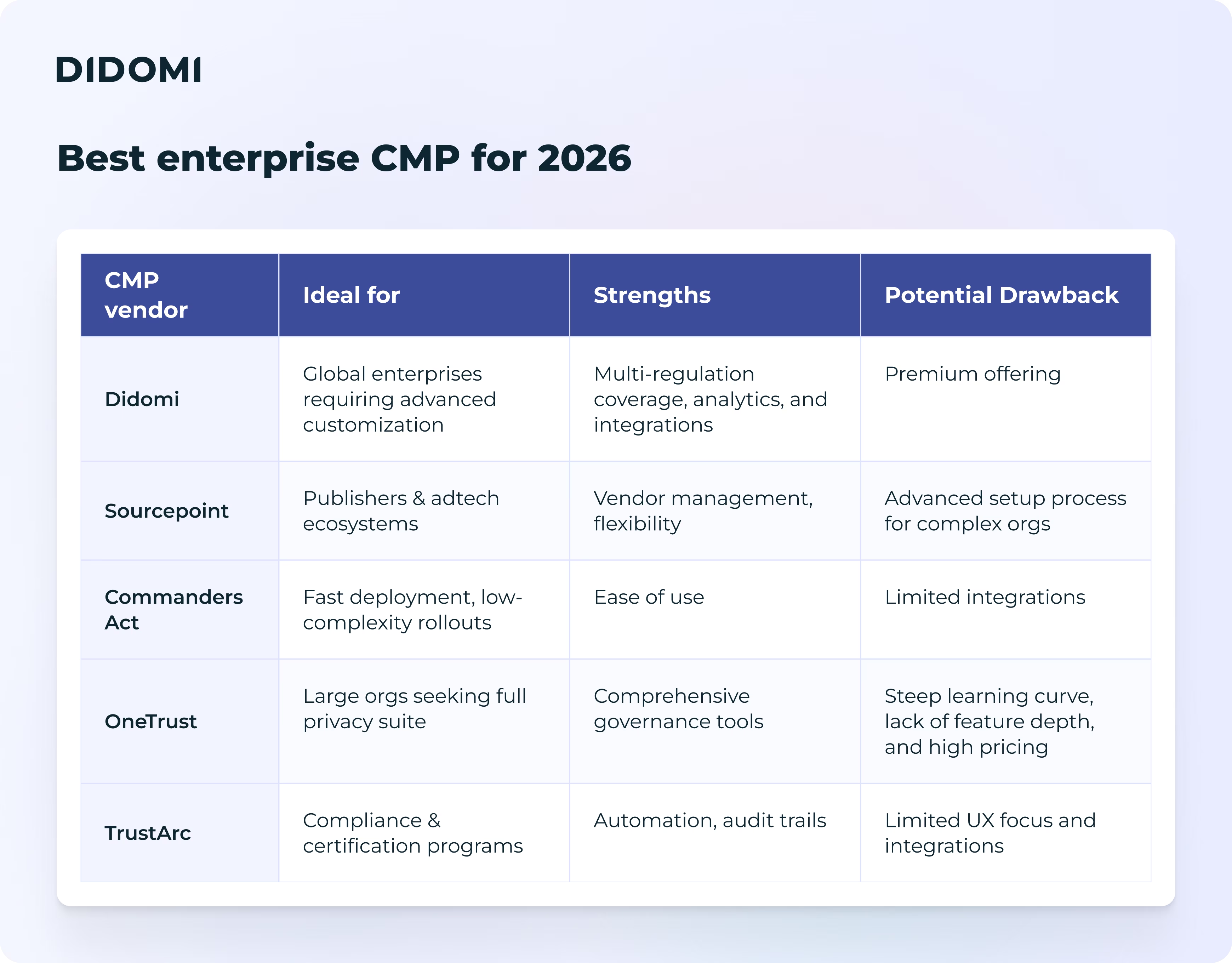
What to look for in an enterprise CMP for your organization?
When choosing a consent management platform to answer enterprise-level requirements and challenges specifically, it’s critical you consider the following key criteria:
Interoperability and integrations
Enterprise environments rarely rely on isolated tools. An enterprise-grade CMP must integrate seamlessly with your broader data ecosystem, including your CRM, analytics, tag manager, CDP, and data warehouse, and connect with APIs or ETL workflows to ensure that consent signals follow user data wherever it travels.
Look for platforms that offer:
- Native integrations with major martech and adtech solutions (Google, Adobe, Salesforce, etc.)
- Flexible export capabilities for BI and compliance reporting
- Support for server-side tagging and hybrid cloud environments
The best enterprise CMPs turn consent signals into actionable data by connecting privacy management with every system in your marketing and data ecosystem.
Multi-regulation and global compliance
For multinational enterprises, compliance entails navigating overlapping and evolving regulatory frameworks, including the GDPR, CCPA/CPRA, LGPD, Law 25, PDPA, and (many) others.
An enterprise CMP should provide:
- Rule-based configurations per region or brand, not one-size-fits-all settings
- Automatic updates to regulatory changes
- Support for multiple consent frameworks, such as IAB TCF v2.2, Google Consent Mode v2, Microsoft UET Consent Mode, and the Global Privacy Protocol (GPP)
Enterprises require CMPs that can adapt to the evolving global regulatory landscape, ensuring continuous compliance across all markets without requiring constant reconfiguration.
Scalability and performance
At enterprise scale, a CMP must handle millions of user interactions per day without latency or banner rendering issues. Performance optimization has a direct impact on user experience and consent rates.
Look for:
- CDN-based delivery and edge caching for faster load times
- Scalable architecture that can handle global traffic spikes
- High availability SLAs and transparent uptime reporting
The best enterprise CMPs deliver speed and reliability at scale, handling millions of consent decisions without significantly impacting user experience or site performance.
Customization and branding
Large enterprises often manage multiple brands, domains, and subsidiaries, each requiring distinct consent experiences that still adhere to corporate guidelines.
An enterprise CMP should allow:
- Full white-labeling and granular UI customization
- Custom logic and scripting to accommodate unique consent workflows
- Multilingual support with automatic language detection
For enterprises managing multiple brands, customization ensures every consent experience feels consistent, trusted, and aligned with global design standards.
Advanced analytics and consent rate optimization
Data-driven decision-making is central to enterprise operations. The right CMP should not only collect consent but also allow you to measure and improve the process.
Valuable capabilities include:
- Consent analytics dashboards for tracking acceptance, refusal, and bounce rates by region, device, or page
- A/B testing tools to optimize banner design and placement
- Integration with BI tools (Looker, Power BI, Tableau) for cross-functional reporting
Enterprise teams rely on actionable data from their CMP to optimize consent rates, refine UX, and prove the ROI of privacy investments.
Proven enterprise readiness
The state of data privacy is constantly shifting, and enterprises require a strategic partner they can trust. Consider the ability of your vendor to support your teams and adapt to your governance standards.
Make sure to evaluate:
- Dedicated account management and SLA-backed support
- Security certifications, including ISO 27001
- Customer success and implementation frameworks designed for large-scale rollouts
When privacy becomes part of corporate infrastructure, vendor maturity, security certifications, and SLA-backed partnerships make all the difference.
Implementation and change management
Deploying a CMP at the enterprise level can take months, involving multiple departments (legal, marketing, IT, data, UX). The best vendors offer guided onboarding, testing sandboxes, and migration support to streamline the deployment process.
Ask vendors about:
- Implementation timelines and available professional services
- Testing and QA environments
- Compatibility with tag management and consent APIs
Successful enterprise deployments depend on collaboration, clear onboarding frameworks, and the ability to scale implementation across teams and regions.
Governance and auditability
Enterprises generally face strict internal and external audits, so your CMP should be able to demonstrate compliance effectively.
Key features to look for:
- Comprehensive consent logs with immutable records
- Role-based access control (RBAC) and approval workflows
- Audit trails for all consent-related configurations and changes
Audit-ready CMPs turn compliance into a defensible advantage by providing clear, immutable records that protect your organization during internal and external reviews.
How to pick the right CMP?
Building an enterprise-grade privacy program begins with selecting technology that scales with your needs. Download our 2025 CMP Buyer’s Guide to compare vendors, evaluate readiness, and plan your deployment roadmap:

Why do enterprises need a consent management platform?
A modern, enterprise-grade Consent Management Platform (CMP) does far more than display a banner. By operationalizing privacy at scale for large organizations, the right CMP provides the foundation for consistent, defensible, and performance-oriented data governance. Here are 6 reasons why enterprises need to consider adopting a CMP:
1. Enabling compliance at scale across global markets
Enterprise CMPs automate the enforcement of local privacy laws across jurisdictions, ensuring that consent collection, storage, and transmission comply with region-specific requirements, such as the GDPR, CPRA, LGPD, or Law 25.
Instead of manual configuration, legal and IT teams can manage compliance centrally while delegating execution across markets.
Outcome:
Streamlined compliance governance and reduced regulatory risk exposure.
2. Strengthening brand trust through consistent user experiences
At enterprise scale, user trust depends on predictability. A CMP enables brands to deliver transparent, consistent consent flows across websites, apps, and regions, thereby maintaining both compliance and a unified brand voice.
The result is an experience where privacy reinforces credibility rather than interrupting it.
Outcome:
Greater consumer trust and brand differentiation through transparency.
3. Integrating privacy signals across your entire data ecosystem
Enterprises rely on dozens of tools (CRMs, CDPs, analytics, and marketing systems) that process user data. A CMP ensures consent choices are propagated accurately across all these platforms, breaking down silos between legal, marketing, and data teams.
This interoperability turns consent into a shared operational signal.
Outcome:
Unified data governance and alignment between privacy and marketing operations.
4. Reducing vendor risk through centralized control
With hundreds of partners and vendors, enterprises face significant exposure to non-compliance. A CMP establishes vendor transparency by logging consent signals, enforcing data-sharing limits, and documenting compliance activity, creating a single source of truth during audits.
Outcome:
Reduced third-party risk and faster audit response times.
5. Driving measurable performance and operational efficiency
Beyond compliance, enterprise CMPs provide analytics on consent rates, user engagement, and banner effectiveness, helping teams identify optimization opportunities and justify privacy investments.
Outcome:
Data-driven improvement in consent rates, user experience, and marketing performance.
6. Benchmarking progress and leveraging expert support
For enterprises committed to continuous improvement, benchmarking consent performance is key. Access to expert analysis and comparative industry data enables teams to evaluate their current position, identify opportunities for optimization, and refine their privacy strategies over time.
Partnering with a trusted CMP provider gives your organization not only the tools but also the expertise to translate compliance into measurable success.
Outcome:
Ongoing optimization of consent performance backed by industry insights and expert guidance.
How to evaluate your consent rate performance?
Do you know whether your current consent rate is excellent, average, or below average? Check out our 2025 consent benchmark to compare your performance to the industry standard:

Get started with enterprise-grade consent management
As privacy expectations grow and regulations multiply, enterprises have the opportunity to leverage consent management as a strategic layer of data governance. The right CMP acts as the backbone of your privacy infrastructure, aligning marketing, legal, and IT teams around a single source of truth for user choices.
At Didomi, we help global organizations turn consent management into a competitive advantage. From multi-regulation coverage to advanced analytics and enterprise integrations, our platform scales with your organization, ensuring compliance, improving user trust, and unlocking performance.
To discuss how we could help with your consent management and data privacy challenges, book a call with our team:
{{talk-to-an-expert}}
Frequently Asked Questions (FAQ)
What makes a CMP truly “enterprise-grade”?
Enterprise-grade CMPs go beyond banners by integrating with your tech stack, adapting to global regulations, and providing governance tools, analytics, and SLAs to support large-scale operations.
How can enterprises measure the ROI of a CMP?
Enterprise teams track metrics such as consent rate improvements, compliance risk reduction, operational efficiency (including reduced manual work), and data quality improvements across their marketing stack.
What are the key KPIs for consent management at scale?
Core KPIs include consent acceptance rates by region or device, banner interaction rates, opt-out ratios, and the impact of latency on conversions.
How long does it take to implement an enterprise CMP?
Depending on complexity, implementation can range from a few weeks for single-brand setups to several months for multi-market, multi-platform organizations.
Didomi collaborates with numerous enterprise clients, providing onboarding frameworks and dedicated success teams to streamline the rollout process.
How do CMPs integrate with privacy governance platforms or data warehouses?
Leading enterprise CMPs like Didomi integrate directly with CDPs, data warehouses, and marketing systems through APIs or ETL pipelines, ensuring consent data is propagated across your entire data ecosystem.
How does Didomi support enterprises with ongoing compliance updates?
Our CMP is continuously updated to reflect new regulations and frameworks (such as Google Consent Mode V2 and IAB TCF v2.2), ensuring your global compliance strategy remains current without additional configuration.

.svg)











.png)
